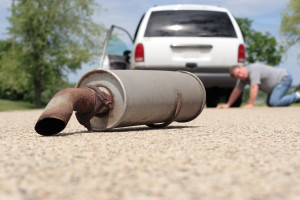
Unfortunately, this decision will have to be made at some point by most drivers. Even if you have paid special attention to your car and were on top of all maintenance and repairs, cars don’t last forever. There are certain repairs that may be unavoidable, such as if you have a timing belt. Typically, you will need to replace this when you hit the 100,000 mile mark. You may also need to replace the water pump around this time as well. Wear and tear happens, and if you have a high repair bill, you may begin to start wondering whether or not it’s time to replace the vehicle and trade it in.
Things to Consider Before You Make a Decision
A repair bill of few thousand dollars can highly motivate you to start looking at new car listings in your area, but there are a few things to keep in mind before you trade your car in:
You Will Need to Start Making Monthly Payments Again: Let’s say that you are charged $5000 to put in a new engine. That’s a lot of money and would be roughly what you would need for a new car down payment. That’s just a down payment though. Unless you can pay for the car outright, you’ll be forced to finance, which means monthly payments. Do you have the budget for that?
You May Have to Pay More for Insurance and Registration: If you get a new car you might have to pay more for auto insurance and car registration fees. eTags specializes in registration renewal for several states, including California and Florida. Any representative of eTags would tell you that registration fees depend on a number of factors, including the type of car and its trade-in value. Keep this in mind when budgeting.
Your Car’s Value Will Depreciate the Minute It’s Driven off the Lot: Expect a new vehicle to depreciate in value by 20% or more. You’ve already experienced this hit with your current car.
These are a few reasons to make you think a little longer. Obviously there are many reasons to trade up as well. You might get better fuel mileage, you could get a vehicle with better safety features or newer technologies, and you could get a car that you know you can rely on for the next decade. Keep all of these points in mind as you weigh your decision